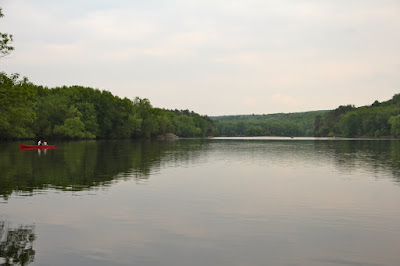As it becomes more and more obvious that our political systems aren’t adequate to help US respond to the crises we face, I keep thinking about the possibility of a bioregional alternative. This morning, after some poking and prodding, the interwebs coughed up some prospects I’d not come across before, Bioregional Learning Centers. The linked source relates the concept to Donella Meadows work as she was co-founding the Balaton Group.
Of more immediate interest, there’s a current version of a BLC functioning in South Devon, England. As described on the group’s home page:
Today we are a seedbed of innovation in soil restoration, organic farming, community-supported fishing, rewilding, the circular economy, social enterprise, re-localising procurement, community action and leveraging systems change with small-scale interventions. We are, together, growing a learning region for a climate resilient future.
As I skimmed my way through several of the pages on the web site, I couldn’t help but wonder if areas in Minnesota might benefit from the creation of BLCs. In particular, the St. Croix River watershed and the northern Minnesota Iron Range/ Boundary Waters complex.
 |
| can the St. Croix be protected from CAFOs? Photo by J. Harrington |
Minnesota has already enjoyed an effort somewhat comparable to the Devon’s river charter. In 2016, the Institute for the Environment sponsored a lecture series, one of which was “River Journey: Exploring the Value of the Mississippi River.”
I raise these prospects because, it seems to me, Minnesota has a number of groups that focus well on fragments of our socioecological systems, but lacks the type of umbrella organization that cuts across functions and issues and builds needed networks to get new concepts and best practices implemented in a timely fashion. Instead, we have come to rely on on increasingly dysfunction and combative legislature where too many of us are represented by those more interested in holding power than solving problems. Having several Bioregional Learning Centers (similar to, but distinct from, the University’s Regional Sustainable Development Partnerships?) could help provide the resources, frameworks and interdependence we need for effective regional solutions.
In Response to a Question
The earth says have a place, be what that place
requires; hear the sound the birds imply
and see as deep as ridges go behind
each other. (Some people call their scenery flat,
their only picture framed by what they know:
I think around them rise a riches and a loss
too equal for their chart – but absolutely tall.)The earth says every summer have a ranch
that’s minimum: one tree, one well, a landscape
that proclaims a universe – sermon
of the hills, hallelujah mountain,
highway guided by the way the world is tilted,
reduplication of mirage, flat evening:
a kind of ritual for the wavering.The earth says where you live wear the kind
of color that your life is (gray shirt for me)
and by listening with the same bowed head that sings
draw all into one song, joining
the sparrow on the lawn, and row that easy
way, the rage without met by the wings
within that guide you anywhere the wind blows.Listening, I think that’s what the earth says.
– William Stafford
(from Stories That Could Be True, for educational purposes only)
********************************************
Thanks for visiting. Come again when you can.
Please be kind to each other while you can.
No comments:
Post a Comment